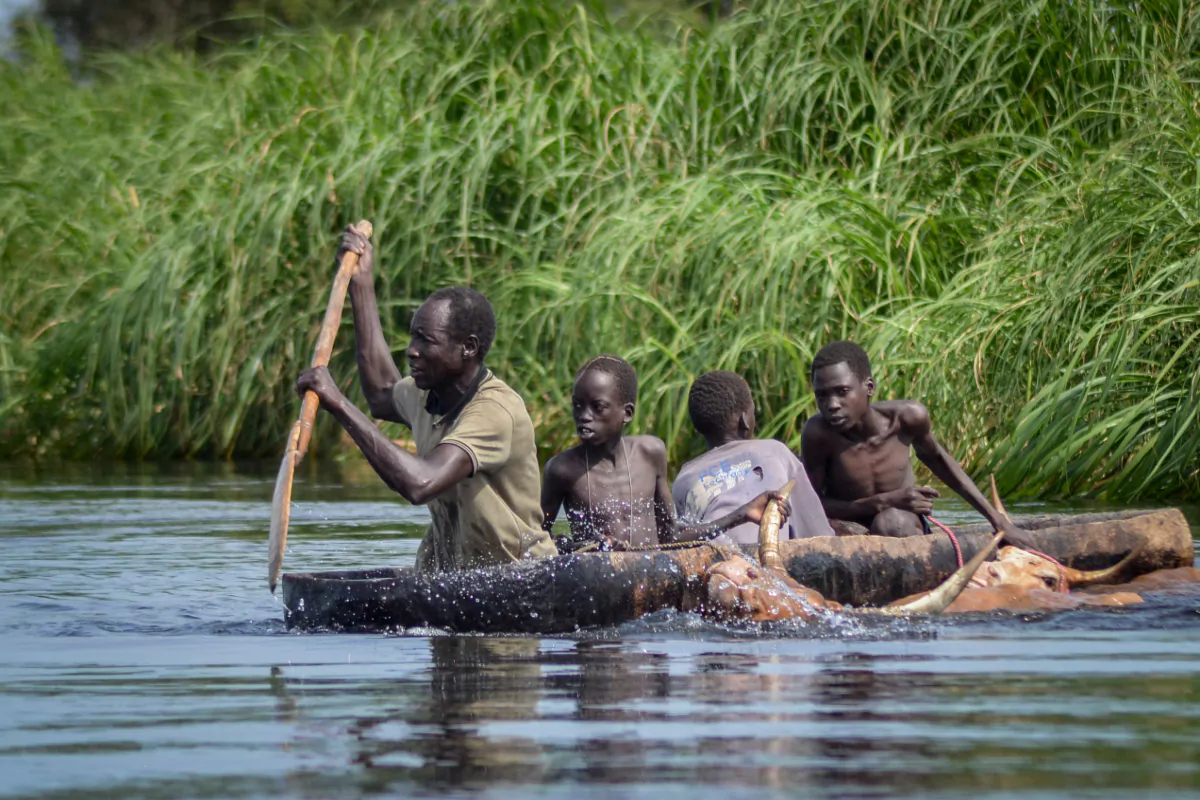On a scrap of land surrounded by flooding in South Sudan, families drink and bathe from the waters that swept away latrines and continue to rise.
Some 1 million people in the country have been displaced or isolated for months by the worst flooding in memory, with the intense rainy season a sign of climate change. The waters began rising in June, washing away crops, swamping roads and worsening hunger and disease in the young nation struggling to recover from civil war. Now famine is a threat.
On a recent visit by The Associated Press to the Old Fangak area in hard-hit Jonglei state, parents spoke of walking for hours in chest-deep water to find food and health care as malaria and diarrheal diseases spread.
Regina Nyakol Piny, a mother of nine, now lives in a primary school in the village of Wangchot after their home was swamped.
We dont have food here, we rely only on U.N. humanitarian agencies or by collecting firewood and selling it, she said. My children get sick because of the…
